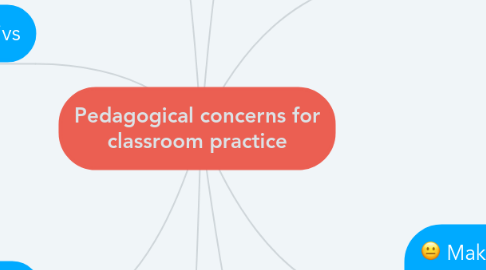Pedagogical concerns for classroom practice
por Verito Vera


1. Successful Teaching involves:
1.1. Selecting learning activities
1.2. Preparing students for new learning
1.3. Presenting understanding
1.4. Providing opportunities for practice
1.5. Monitoring student’s learning
1.6. Giving feedback
1.7. reviewing and re-teaching
2. Software Objectivs
2.1. Reach an inductive approach of constructivist design
2.2. Effective user control
2.3. Reach an effective CALL environment
2.4. Offer different interfaces
2.5. Facilitate different learning styles
2.6. Improve language skills
3. Software Advantages
3.1. learners can be more closely involved in the decision-making process
3.2. allow learners to organize their own learning.
3.3. Teachers can test student's progress
3.4. Allow teach by levels of language learning
3.5. Make students more responsible for their learning
3.6. Increase intrinsic motivation.
4. Establishing an environment where CALL may take place
4.1. The learners often collaborate at the computer
4.2. Encourage learning in a collaborative context.
4.3. It is necessary an environment which matches the social and interactive nature of CALL activities
4.4. If computer access is restricted, either in terms of time or space then CALL is discouraged.
5. Computer's role
5.1. Engage students
5.2. Complementary tool
5.3. Virtual Teacher
6. Software Difficulties
6.1. Need of human intervention
6.2. Depends on the computer's characteristics
6.3. Depends on the learners' working styles
7. Making better use of existing materials
7.1. ‘Surface’ approach involves memorization of details.
7.2. ‘Deep’ approach involves the integration of the new materials into existing knowledge
7.3. Reconsideration of prior knowledge in light of new information.
7.4. The representation of learning has several levels
7.4.1. noticing, making sense
7.4.2. To making meaning
7.4.3. Working with meaning and transformative learning.
7.5. Learners link ideas to other ideas, construct relationships with prior knowledge
7.6. ePortafolio
7.6.1. provides students with a structure
7.6.2. scaffolds a move into the stages of ‘deep’ learning
